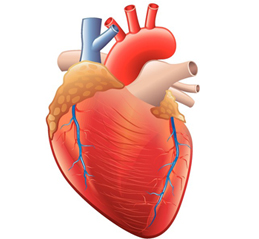For most physicians, arriving at a proper diagnosis is not an easy task as patients’ symptoms and associated disease conditions tend to evolve over time. Physicians are faced with a lot of uncertainty and probabilities on how a medical condition should be pursued so that they can arrive at a proper diagnosis. For cardiologists, the overdiagnosis of mild hypertension is a major issue in cardiology medical billing. Not only does it harm the patient, but overdiagnosis can also badly affect the physician’s reimbursement and reputation.
Medical coding for hypertension is a bit confusing with the new ICD-10-CM codes since while hypertension is generally classified under I10, there are sub-conditions and associated conditions that have different codes and must therefore be coded carefully.
A Vivid Example – Overdiagnosis of Hypertension
Hypertension is one of the conditions that has recently displayed a tendency to be overdiagnosed. Medical experts, quoted in MinnPost, claim that the categorization of “mild hypertension” is 10-year old development. The main issues are as follows:
- Mild hypertension patients are in a low-risk condition but get treated unnecessarily with drugs for lowering blood pressure, when appropriate diet is all that’s required.
- Hypertension is being diagnosed at lower blood pressures nowadays than considered earlier as high.
- Many adults classified with hypertension actually fall under the mild category and therefore require no treatment for hypertension.
While high blood pressure individuals have a systolic pressure above 160 and diastolic pressure above 100, people with mild hypertension have systolic pressure ranging from 140 to 159 and diastolic pressure ranging from 90 to 99. Such individuals without any existing diabetes, kidney disease or heart disease are low risk, but are still treated with drugs for lowering blood pressure. Though there has been no net benefit reported in treating such low risk mild hypertension individuals, they are still pumped with drugs.
This is a vivid example of overdiagnosis. This contributes to the $32 billion spent annually in the US on mild hypertension treatment, accounting for over 1% of the nation’s annual healthcare costs.
Avoid Overbilling and Healthcare Fraud
It is true that submitting precise medical claims to insurance companies is a major challenge for hospitals and practices. They need to maintain their sustainability through a constant revenue stream, and that has become a challenge with complex billing and coding requirements and the ICD-10 implementation. Overdiagnosis seems to be followed by many hospitals, which reflects in the billings resulting in higher earnings. Overbilling – whether inadvertent or deliberate – must be avoided at all costs.
Insurance companies are well aware of the menace of overdiagnosis and scrutinize medical bills carefully to detect the problem. In addition to non-payment, overbilling can put physicians in legal trouble too. The Federal and state governments are following a policy of cracking down on overbilling and other kinds of healthcare fraud. Overbilling causes rejected claims, and could also bring about huge penalties, criminal indictments and, of course, loss of precious reputation for physicians and practices.
So make sure your cardiology medical billing is accurate by taking care to avoid overdiagnosis, which invariably leads to wrong billing.


